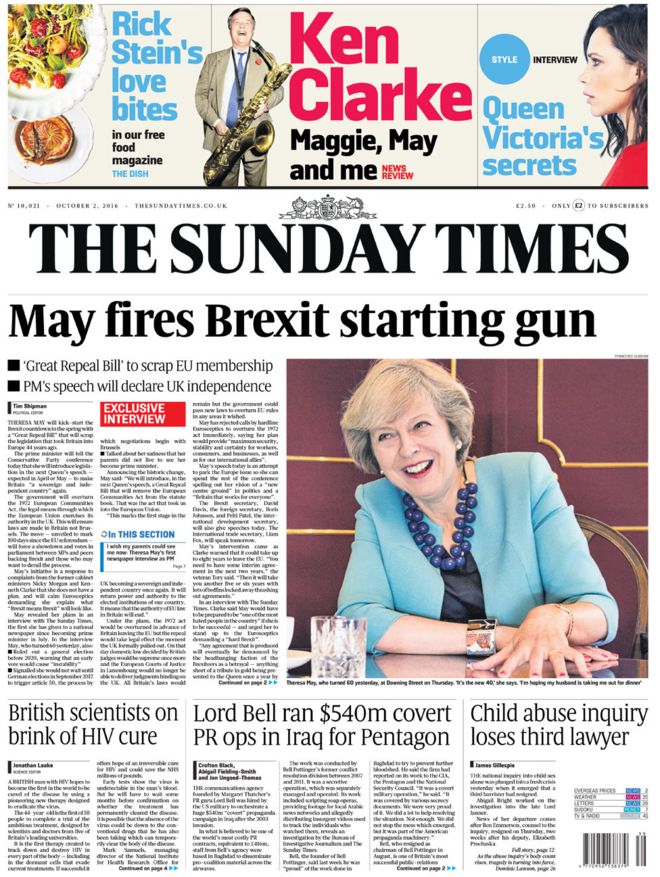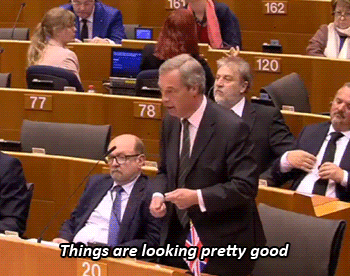We need to be aware that Article 50, as intended, could tie us up in knots. Nobody can guarantee that there will be an acceptable agreement at the end of the process anyway. So we must be prepared to leave without any formal agreement if necessary, or the commission has us over a barrel. Leaving without a formal withdrawal agreement would be messy, but a messy Brexit is what many have suggested that the commission and much of the EU would like. Still, a speedy and decisive resolution would be far more acceptable to business than years and years of uncertainty and then a “fudge”, as confirmed by Markus Kerber, head of the BDI, the federation of German industries.
Without a formal agreement, most things, like security cooperation, would carry on anyway because they have to. Complicated things like patent and data law could be quickly sorted out afterwards. Of course, the big threat is loss of access to the single market, but the UK could start by making it clear we are offering zero tariffs for EU imports, and an open UK market for EU services as now, and that we would implement this unilaterally pro tem in the absence of a withdrawal agreement. What would the EU do? Would they really want to slap on their own tariffs and protectionism anyway?
There are two other factors that will drive the UK and the EU towards a quick free trade deal, pre- or post-Brexit. We often pointed out that the UK imports £70bn more from the EU than we export to them, and Remainers always talked down this strength in the UK position. True, while 44% of our exports go to the EU, only 8% of EU exports come to us. But as thinktank Civitas explains, protectionism would threaten a far bigger share of jobs in the other EU states than in the UK. UK exports to Germany are estimated to support 752,000 jobs, or 2.4% of UK jobs, but 1.3 million German jobs depend upon their exports to the UK, which is 3.2%. This pattern is repeated across the entire EU. UK exports to France support 1.7% of our jobs, but theirs to the UK support 2.4% of jobs in the France; to Italy, it is 0.9% vs 1.7%; for Belgium, it is 0.8% vs 7.8%; and for Ireland it is 1.4% vs 9.5%. Which countries would rationally support anything but free trade?



